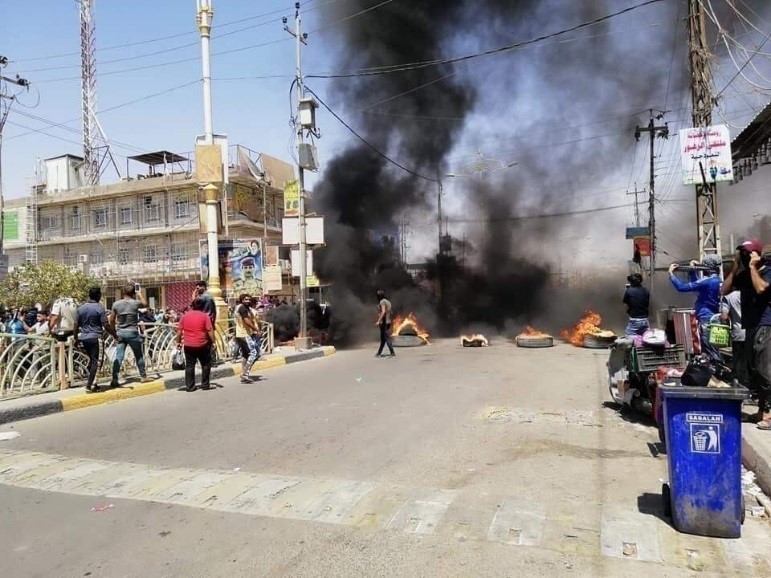Protests have escalated once again in the southern Iraqi city of Basra.
What started during the summer as a reaction to the lack of infrastructure, polluted water, and intermittent electricity have threatened to become a significant challenge to the authority of the central government in Bagdad. The fact that more than four months have passed since Iraqis went to the polls and there is still no new national government able and willing to target and resolve the grievances has not helped the situation.
Inevitable
The sheer size, persistence, and geographic span of the protests surprised many inside of Iraq and out. For PAX and its local partners, these protests came as less a shock than an inevitability. Our most recent Human Security Survey in Basra from April-May 2018, conducted with over 750 individuals across the governorate mere weeks before the protests began, makes clear that members of the public see a link between worsening economic conditions, poor governance, and rising insecurity.
For instance, when asked to identify the two main factors most likely to cause conflict in the coming year, 81% of HSS respondents said “poverty or lack of livelihood opportunities” and 40% pointed to “poor governance at the national level.” People were also rather pessimistic about the future, with two-thirds of respondents saying that it is either somewhat likely or very likely that they would personally become a victim of violence in the coming year.
Dependable source of wealth
Basra governorate – home to one of Iraq’s largest cities and much of the country’s oil reserves – was long a dependable source of wealth for the country. However, today Basra is characterized by rising unemployment, poor service delivery, ineffective governance, environmental degradation, and increasing criminality. The acute electricity and water shortages that preceded this year’s protests coincided with soaring temperatures across the region. The once lush region between the Tigris and Euphrates rivers now has only salty and polluted water flowing from its taps. According to independent reports, nearly 100,000 people have been admitted to hospitals in recent weeks as a result.
Lack of security
The response of Iraqi security forces and related actors to the demonstrations have been repressive and violent. Civil activists have been injured and report threats. The murder of human rights and women’s rights activist Su’ad al-Ali on 25 September shows that there are serious security gaps in the city.
Dialogue
PAX urges the Iraqi government and security forces to take meaningful steps to investigate and bring to justice all those who have committed violence against peaceful demonstrators. The Iraqi government needs to address public grievances and restore basic services to the people of Basra, and to refrain from the use of violence in responding to legitimate public protest. Instead, we urge local authorities to join our Iraqi partners in utilizing our Human Security Survey methodology as a means for facilitating constructive dialogue between civil society, government authorities, and security institutions.
Read a summary of key findings from our recent survey in Basra
Read also the blog Basra is Thirsty!




